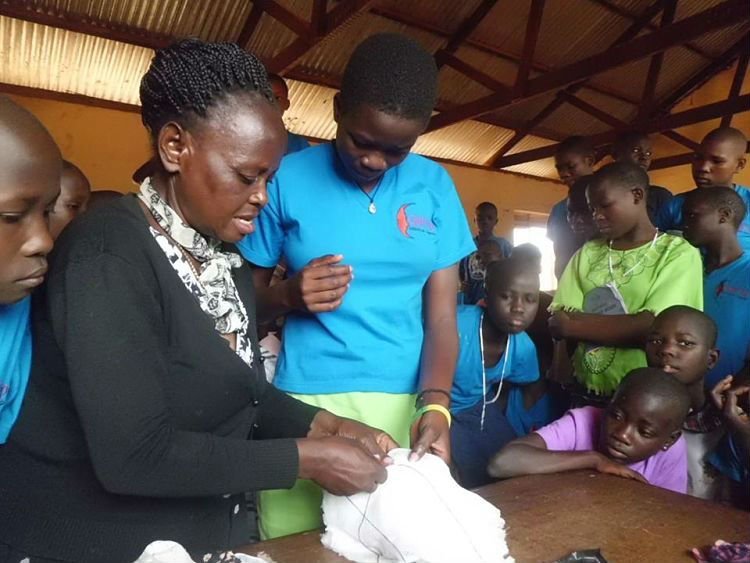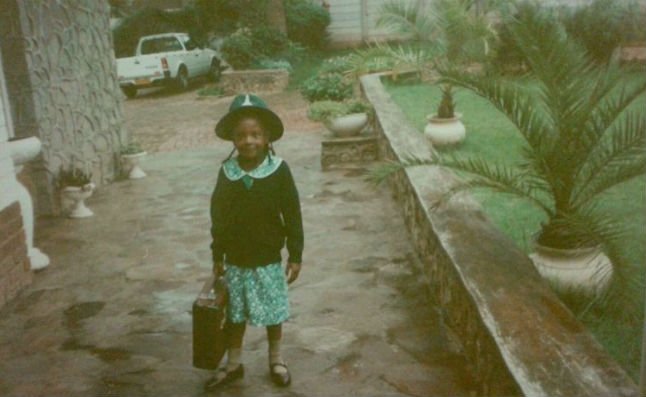Different kinds of oppression exist around the world, but for this post I will focus on gender oppression in sub-Saharan Africa and the US. Being a woman often times leaves one at a disadvantage, no matter where one lives in both these places. The US also happens to be a place where people are quickly placed into categories -- through stereotypes and generalizations-- and I have come to learn that being a woman of color adds a layer of complexity which exposes one to additional forms and degrees of discrimination. That said, women and girls have more freedom and opportunities in the US, and exposure to this is part of what motivated me to join a team of global feminists based in Uganda and around the world, working tirelessly to fight for girls who do not have the kinds of opportunities they need and deserve in order flourish in life.
Coming to the US from Zimbabwe opened my eyes in a lot of ways. In my opinion the liberties women and girls have in the US is partly due to the lack of ‘cultural justifications’ that can be used to stifle their progress. In addition, being a nation that prides itself on democracy and freedom, it would be contradictory to be seen internationally to be oppressing half its population. There remain, however, prevalent inequalities rooted in gender discrimination, such as unequal pay, low representation in roles of leadership and decision-making, and unfair policies regarding pregnancy and maternity leave. In other societies and cultures, this can be intensified by socio-cultural norms as well as the eco-political climate-- something some Western feminists have been said to overlook, and feminists working on a global scale have to continually research, analyze, and address.
When I was thinking about this post, I realized that I must first clarify the question: what is feminism? According to Webster dictionary, feminism is ‘the belief that men and women should have equal rights and opportunities’ or in action, ‘organized activity in support of women's rights and interests’.
Girl Up Initiative Uganda (GUIU) works with a feminist lens to counter the implications that come with being a girl in the slums of Kampala. GUIU believes one's gender should not relegate them to second-class citizen status.

Growing up in Zimbabwe, it took me coming to the US to comprehend some of the injustices that existed around me, from the recent stripping of a young woman for being dressed ‘inappropriately’ (something street harassment laws protects women in the US from), to challenges girls face revolving around early sex, teen pregnancy and child marriage.
When one looks at the issues holistically, it becomes obvious that a lot of the gender discrimination in the global south is related to poverty and economic hardship, the lack of political will to protect them, and institutionalized patriarchy which is backed by socio-cultural beliefs. I was fortunate to have grown up in a quasi-middle class family, and so some the local traditions did not affect me as much. Still, I was constantly reminded that I was a girl, and even today, that I am a woman, who should ‘know my place in society’. Don’t get me wrong, I appreciate the value of certain traditions and cultural expectations, especially for a nation state with a colonial legacy, trying to hang onto what remains of their own history. But, at the same time, I refuse to allow some of them that have become harmful and outdated to marginalize me based on gender. Unfortunately, not everyone has the freedom to think or act this way, and this is where organizations like GUIU can step in.
GUIU aims to empower girls through its curriculum to know their rights and explore their potential so they can attain their life goals, and working with GUIU has been my way of channeling that energy and instinct I have had from a young age.
 The author as a child.
The author as a child.
I am by definition shamelessly, a global feminist; and GUIU as an organization I work with, champions feminism’s underlying ideology -- the belief in equal opportunities for all girls and women.
You can learn more about Girl Up Initiative Uganda here.. and follow GUIU's Instagram here!
Article contributed by Maxine Chikumbo, in support of Girl Up Initiative Uganda.